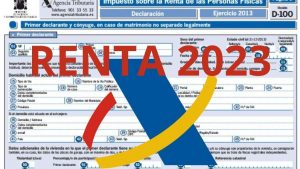Do you own a property that you rent? Then this information is of interest to you! Deducting rental expenses as a landlord can be a great way to maximize your tax benefits and save money.
Find out what expenses you can deduct when renting your home. Turning your property into a source of passive income is a smart move, but being a landlord comes with financial responsibilities. Fortunately, many of the associated expenses can be deducted when reporting rent on your tax return. Here are some of them:
- Taxes and Fees: The Real Estate Tax (IBI) is the first tax you can deduct, as it is usually the responsibility of the landlord in a rental contract. You can also deduct municipal taxes for cleaning, garbage, lighting or water, although please note that increases derived from fines or penalties are not deductible.
- Home maintenance and repair expenses: As the owner, it is your responsibility to pay for the work necessary to maintain the habitability of the home, from minor repairs to painting the walls. In addition, you can deduct the cost of home insurance related to the upkeep and repair of the property.
- Mortgage interest: If you are still paying the mortgage on the property you rent, you can deduct the interest paid to the bank, not the full amount of the loan.
- Community expenses: Like IBI, community expenses are generally the responsibility of the owner and may include common services such as electricity in common areas, water, elevator maintenance and community insurance. You can also deduct extraordinary expenses, such as overpayments.
- Amortization of real estate: You can deduct 3% of the cadastral value of the home and personal property. If you rent the property with furniture, you can amortize 10% for each year of rental.
- Rental contract expenses: Expenses derived from the rental contract, such as commissions paid to real estate agencies or platforms, are also tax deductible, as long as they were paid by the owner and not the tenant, as established in the housing law passed in 2023.
In addition, tax-deductible rent as a landlord allows you to increase the profitability of your real estate investment. By maximizing your tax benefits, you can increase your net income and make your property even more profitable.
In summary, deducting rent-related expenses as a landlord is a smart strategy to optimize your finances and get the most out of your real estate investment. Don’t miss this opportunity and start enjoying the benefits of deducting rent expenses today!
Once you have calculated and added up the annual total of these expenses, you can subtract them from the total rental income to determine the taxable base on which to apply the 60% deduction for renting the tenant’s primary residence.
What about the tenant? Tenants can deduct the amount of rent if they have a contract signed before January 1, 2015. However, subsequent contracts do not have this state deduction, although they can enjoy regional deductions according to different criteria.
Rent your home with confidence. At Inmo Empire, we offer you a safe and worry-free rental. Contact us today!







